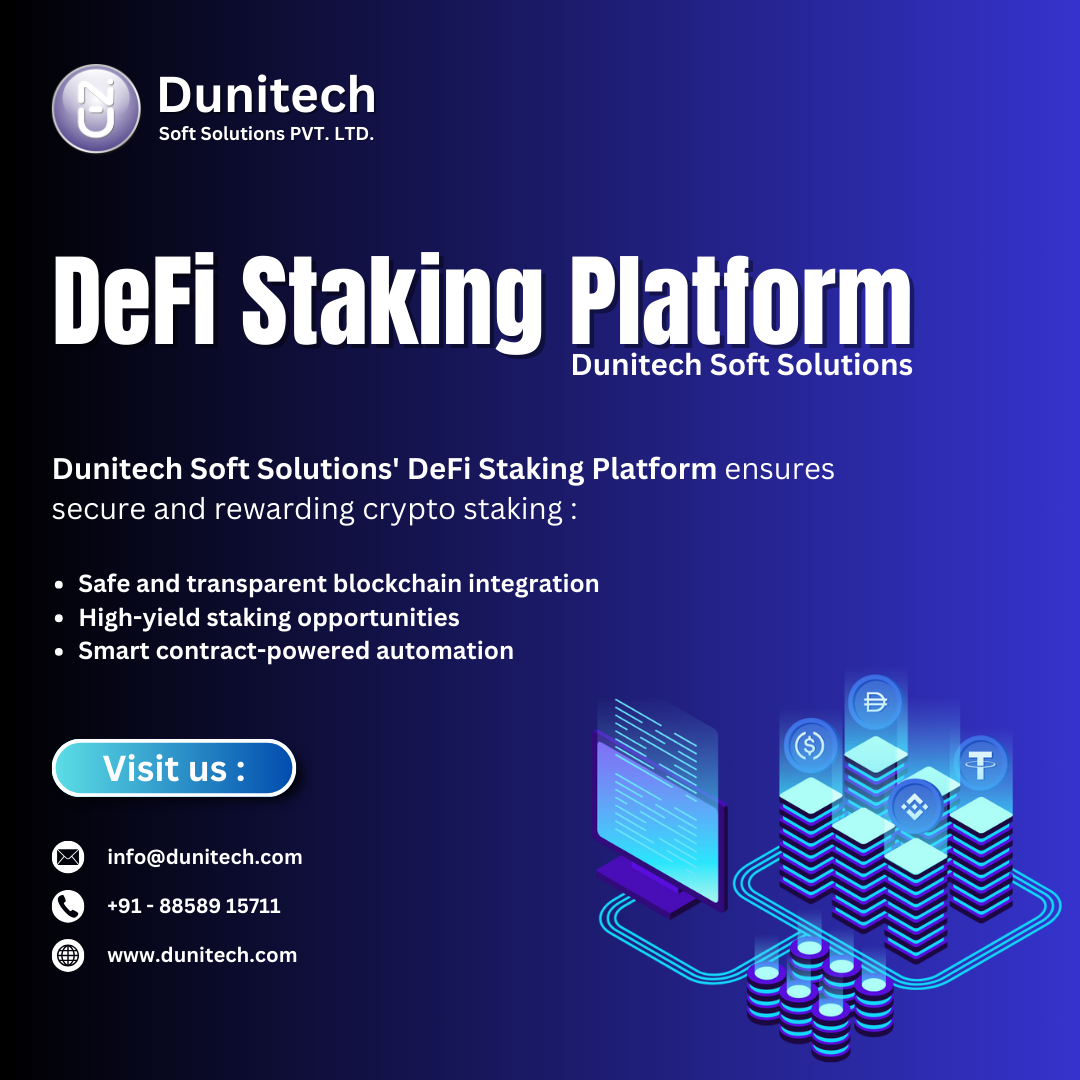Decentralized Finance (DeFi) has revolutionized the financial ecosystem by eliminating intermediaries and providing users with direct access to financial services. One of the most promising areas of DeFi is staking, which enables crypto holders to earn rewards by participating in network security and governance. If you’re looking to build a DeFi staking platform, this guide will walk you through the essentials.
What is DeFi Staking?
DeFi staking is the process of locking up cryptocurrencies in a blockchain network to support its operations, such as transaction validation and governance. In return, users receive staking rewards in the form of additional tokens. Staking is an attractive alternative to traditional investment strategies, offering passive income opportunities while contributing to blockchain security.
Key Features of a DeFi Staking Platform
To develop a robust and secure DeFi staking platform, consider integrating the following features:
1. Multi-Token Staking
Allow users to stake various cryptocurrencies, including Ethereum, Binance Smart Chain tokens, and custom assets.
2. Flexible Staking Options
Offer different staking periods and reward structures, such as fixed, flexible, or tiered staking plans.
3. Smart Contract Integration
Implement secure and audited smart contracts to manage staking pools, rewards distribution, and penalty mechanisms.
4. Yield Farming and Liquidity Pools
Enhance user engagement by integrating yield farming options that allow users to stake their assets in liquidity pools for additional earnings.
5. Governance Mechanisms
Enable decentralized governance through staking-based voting mechanisms, allowing users to influence platform decisions.
6. Cross-Chain Compatibility
Ensure interoperability with multiple blockchain networks to attract a broader user base.
7. Robust Security Measures
Implement multi-layer security protocols, such as two-factor authentication, cold storage, and end-to-end encryption.
Steps to Develop a DeFi Staking Platform
1. Define the Business Model
Choose a suitable revenue model, such as transaction fees, staking commissions, or governance token incentives.
2. Select a Blockchain Network
Popular options include Ethereum, Binance Smart Chain, and Polkadot, depending on factors like transaction speed, cost, and scalability.
3. Develop Smart Contracts
Write and audit smart contracts to ensure secure and transparent staking operations.
4. Design an Intuitive User Interface
Ensure a seamless user experience with an easy-to-navigate dashboard displaying staking status, rewards, and transaction history.
5. Integrate Wallet Support
Enable compatibility with wallets like MetaMask, Trust Wallet, and hardware wallets for secure fund management.
6. Implement Security Protocols
Conduct penetration testing and security audits to safeguard user assets from vulnerabilities and attacks.
7. Deploy and Maintain the Platform
Launch the platform, monitor performance, and continuously update features based on user feedback and market trends.
Why Choose Dunitech Soft Solutions for DeFi Staking Platform Development?
Dunitech Soft Solutions specializes in blockchain development, offering customized DeFi solutions tailored to business requirements. With expertise in smart contract development, security audits, and seamless UI/UX design, Dunitech ensures the delivery of high-performance and secure staking platforms.
Conclusion
Developing a DeFi staking platform requires careful planning, robust security measures, and efficient smart contract execution. By partnering with a trusted blockchain development firm like Dunitech Soft Solutions, you can build a feature-rich, secure, and scalable staking platform that meets market demands.






Comments